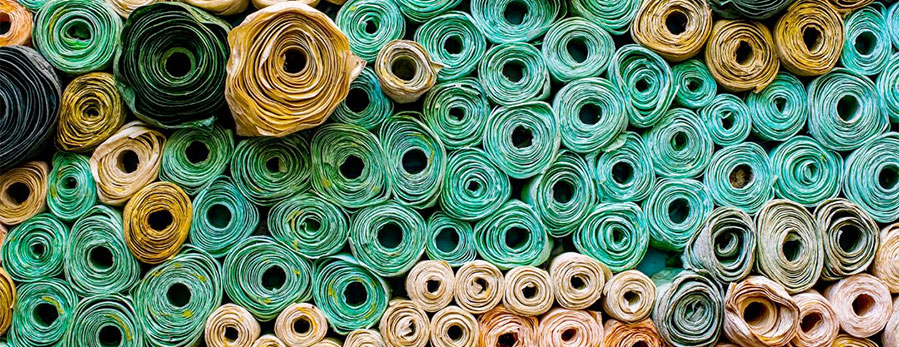#Recycling / Circular Economy
Wealth in waste: India's potential to lead circular textile sourcing

“Advanced recycling technologies are at the cusp of closing the textile-to textile recycling loop. The resources and materials are available, yet the infrastructure and systems to source and provide higher quality feedstock fall short. With mounting pressure to reduce reliance on virgin sources and decarbonise the industry, what can be reused, must be reused to its full potential.” — Katrin Ley, Managing Director at Fashion for Good
Commissioned by Fashion for Good as part of the Sorting for Circularity; India Project, the study was conducted in collaboration with Sattva Consulting, Saahas Zero Waste and Reverse Resources, specialist organisations in strategic impact, waste, resource and data management, and the scaling of textile recycling infrastructures.
To enable an effective transition towards circularity, “WEALTH IN WASTE: THE OPPORTUNITY FOR INDIA TO BRING TEXTILE WASTE BACK INTO THE SUPPLY CHAIN” attempts to fill the data gaps that exist in the textile waste landscape in India. By building a better understanding across three key streams, domestic post-consumer waste, pre-consumer waste and imported waste, and by mapping stakeholders, geographical flows and recognising challenges in the current infrastructure, the study aims to help ecosystem players to orchestrate actions and devise solutions and mediate accordingly.
“The industry stands to gain a clear map of the textile waste value chain in India, armed with a robust set of recommendations for action. This now forms a strong basis to move forward collaboratively to scale the investments, infrastructure and innovation needed to make circularity in fashion a reality in India.” — Anita Chester, Managing Director at Laudes Foundation, India
UNLOCKING POTENTIAL: THE OPPORTUNITY FOR INDIAN PLAYERS
Up to 7800 kilotonnes of textile waste is accumulated in India annually; the largest share of which, an estimated 51%, originates from Indian consumers - post-consumer waste, with factory waste and offcuts - pre-consumer waste, amounting to 42%, followed by imported waste that contributes a further 7%. India’s textile waste accounts for 8.5% of the global total; only 59% of the textile waste in India finds its way back into the textile industry through reuse and recycling, with a mere fraction making it back into the global supply chain.
A lack of strict regulation, informal, and in some cases non-existent, traceability systems, excessive cost competitiveness and limited technological infrastructure to process certain waste types, has limited the potential of circular value chains so far. Detailing the bottlenecks in the current processing of waste, the study identifies materials that can be ranked according to their best potential through a waste value hierarchy framework as well as actions that can push the materials up the hierarchy in the future.
Outlining the potential for collaborative and systemic interventions to fortify circularity in the Indian textile waste industry and reintroduce it into the supply chain, the study presents a three-step approach to driving this transition;
- 1. enabling visibility and access to waste,
- 2. harnessing recycling potential of India, and
- 3. establishing systems, infrastructure and regulations for waste management.
https://reports.fashionforgood.com/wp-content/uploads/2022/07/Sorting-for-Circularity-Wealth-in-Waste.pdf
















